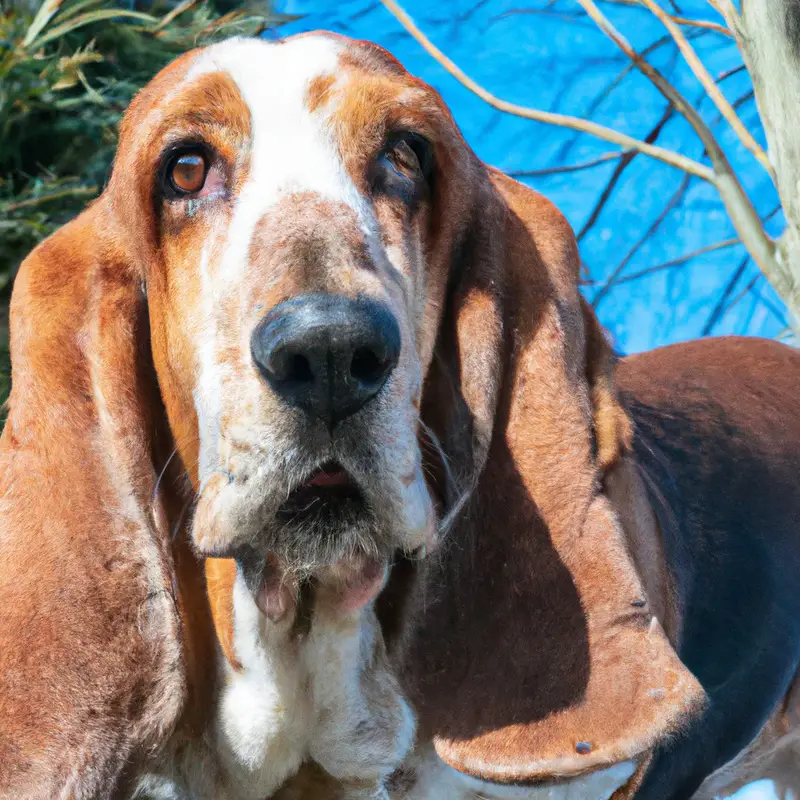How Do Basset Hounds React To Being Left Alone For a Week?
Key Takeaways:
- Basset Hounds can become anxious and distressed when left alone for extended periods of time.
- Leaving a Basset Hound alone for a week can lead to behavioral issues and separation anxiety.
- Providing suitable mental and physical stimulation is crucial for a Basset Hound left alone for a week.
- Engaging a professional pet-sitter or considering alternative care options is recommended to ensure the well-being of a Basset Hound left alone for a week.
Have you ever wondered how your Basset Hound would cope if you had to leave them alone for a week? Basset Hounds are known for their social nature and their love of human companionship.
But what happens when they suddenly find themselves without their favorite humans around?
In this article, we’ll delve into the effects of leaving a Basset Hound alone for an extended period, including the risks of separation anxiety and behavioral changes. We’ll also explore how to prepare your furry friend for your absence and discuss alternative options to ensure their well-being.
So, let’s dive in and uncover the best ways to keep your Basset Hound happy and comfortable when you can’t be there with them.
| Reactions | |
| Basset Hounds | May experience separation anxiety and exhibit behaviors such as excessive barking, howling, chewing, or digging |
Basset Hounds’ social nature
Importance of human companionship
Basset Hounds thrive on human companionship. They are known to be affectionate and enjoy spending time with their owners.
Human interaction provides them with emotional support, mental stimulation, and a sense of security.
Without regular socialization and attention from their humans, Basset Hounds can become lonely and anxious. Having someone around helps fulfill their social needs and prevents boredom.
So, it’s important to make sure they have plenty of quality time with their favorite humans.

Interaction with other dogs
Basset Hounds generally have a friendly and easygoing nature, which extends to their interactions with other dogs.
They are usually very sociable and enjoy the company of other dogs.
In fact, being around other dogs can often bring out their playful and energetic side.
However, as with any breed, it’s important to introduce them to new dogs slowly and carefully to ensure a positive and successful interaction.
This can be done by allowing the dogs to meet in a neutral and controlled environment, such as a park or a fenced backyard.
Always supervise their interactions and be prepared to step in if any signs of aggression or discomfort arise.

Effects of being left alone for a week
Separation anxiety in Basset Hounds
Separation anxiety is a common issue in Basset Hounds.
These dogs form strong bonds with their owners and can become distressed when left alone.
Signs of separation anxiety may include excessive barking, destructive behavior, and house soiling.
It’s important to understand that Basset Hounds thrive on human companionship and may struggle with being alone for extended periods.
Providing them with a comfortable and stimulating environment, gradual desensitization, and enlisting help from a trusted friend or professional can help alleviate their anxiety.
Behavioral changes and signs of distress
When a Basset Hound is left alone for a week, they may experience behavioral changes and signs of distress.
Some common behavioral changes include increased vocalization (barking or howling), destructive behavior (chewing furniture or household items), changes in appetite, and excessive pacing or restlessness.
Signs of distress can include whining, trembling, panting, and even house soiling.
It’s important to recognize these behaviors and address them to ensure your Basset Hound’s well-being.
Preparing a Basset Hound for being alone for a week
Gradual desensitization to being alone
Gradual desensitization is key when preparing a Basset Hound to be alone for a week. Start by leaving your dog alone for short periods and gradually increase the duration over time.
Make sure your Basset Hound has a comfortable and stimulating environment while alone, with plenty of toys and a cozy sleeping area.
Provide positive reinforcement and rewards when your dog remains calm during alone time. This process will help your Basset Hound adjust and feel more at ease when left alone for longer periods.
Providing a comfortable and stimulating environment
To ensure your Basset Hound is comfortable and engaged while you’re away, here are some tips for creating a stimulating environment:
- Provide plenty of toys and puzzles that challenge their mind and keep them entertained.
- Set up a cozy and secure space where they can relax, such as a comfortable bed or crate.
- Use interactive feeders or treat-dispensing toys to keep them mentally stimulated during meal times.
- Leave the radio or TV on at a low volume to provide some background noise and make them feel less alone.
- Consider using pheromone diffusers or calming aids to help reduce anxiety while you’re away.
Enlisting help during your absence
Asking a trusted friend or family member for assistance
Asking a trusted friend or family member for assistance is a great option when you need someone to take care of your Basset Hound while you’re away for a week. They already know your dog and are familiar with their routine, making it easier for them to provide the care and attention your furry friend needs.
Make sure to clearly communicate your dog’s schedule, feeding instructions, and any specific needs or preferences.
It’s also a good idea to leave emergency contact numbers and any relevant information about your dog’s health or behavior.
Hiring a professional pet sitter or using a pet boarding service
If you’re going to be away for a week and want to make sure your Basset Hound is well taken care of, hiring a professional pet sitter or using a pet boarding service are great options.
A professional pet sitter can come to your home, provide companionship, feed your dog, and take them for walks.
On the other hand, a pet boarding service can offer a safe and supervised environment with other dogs for your Basset Hound to socialize with.
Both options ensure that your furry friend receives the attention and care they need while you’re away.

Alternative options for extended absences
Exploring doggy daycare facilities
Exploring doggy daycare facilities can be a great option for keeping your Basset Hound busy and socialized while you’re away. These facilities provide a safe and supervised environment for dogs to play and interact with other dogs.
Plus, they often have dedicated staff members who can ensure your pup gets plenty of exercise and attention.
When choosing a doggy daycare, look for one that has experienced staff, a clean and spacious facility, and positive reviews from other dog owners. Make sure to visit the facility beforehand to ensure it meets your standards and matches your dog’s needs.
Scheduling regular visits from a dog walker
Scheduling regular visits from a dog walker is a great option for ensuring that your Basset Hound gets the attention and exercise they need when you’re away.
This way, they won’t feel lonely or bored during long periods of being left alone.
A dog walker can come by a few times a day to take your pup for walks and provide some social interaction.
It’s important to find a reliable and experienced dog walker who understands the needs of Basset Hounds.
This will give you peace of mind knowing that your furry friend is well taken care of in your absence.
Final Verdict
Basset Hounds are social creatures that thrive on human companionship and interaction with other dogs. Being left alone for a week can have negative effects on their well-being, leading to separation anxiety and behavioral changes.
To prepare a Basset Hound for such an absence, gradual desensitization and creating a comfortable environment are key.
Enlisting the help of trusted friends, family members, or professional pet sitters can also alleviate their distress. For extended absences, exploring options such as doggy daycare or scheduling regular visits from a dog walker can provide additional support.
Ultimately, prioritizing their social needs and well-being is vital in ensuring their happiness and overall health.







